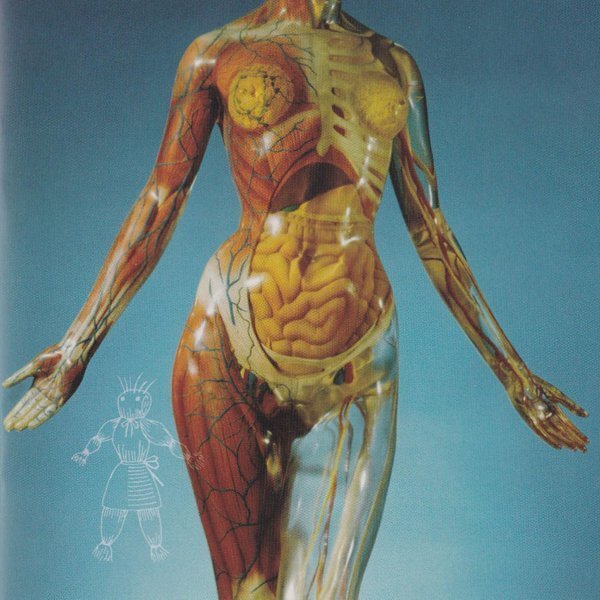Hey privacy community! A few weeks back I’ve seen an article posted here or in some other tech community about TSA rolling out biometric ID process in some US airports, that involved taking a face scan.
I had an international flight planned and I wouldn’t want to go through biometric ID, but I was anxious of potential delay and having to explain myself to TSA agents. I also convinced my wife to opt out, which could potentially double the delay.
So for the folks who may have the same concerns, I’d like to share my experience.
I went on my flight a few days back from Newark International Airport (EWR). We went through security check in new Terminal A. At the beginning of the security line there were a few clearly visible posters about biometric ID with opt out information. To opt out you just need to tell TSA agent that you don’t want your photo to be taken. The poster also says that you will not lose your place in line if you opt out. Same posters are on each agent desk.
The scanning machine is on every agent’s desk, next to the opt out posters. It has a screen, about 8", with something that looks like a set of stereo lenses on top of it. The screen shows the live feed of the person in front of it during scanning process, with a template of a face that helps to properly position it. The scanning process seems to be very quick.
Now, for the opt out - it is indeed as easy and seamless as they claim. I asked the agent to not take my picture, he just said OK and asked me for my passport. The scanning machine didn’t turn on. He scanned my passport and gave it back, and I was done, no questions asked.
Actually, I noticed that people who had their faces scanned also had to hand passports over. So they had to spend more time with the agent than I. I assume because it was their first time through this biometric collection and next time they just scan their face again and that’s it.
And while I was pleased how easy it was for me and my family to opt out of this, in my opinion, completely unnecessary privacy invasion, I have not observed any other person (out of maybe 100 who passed before me) who did the same. Unfortunately, we know here how easily and thoughtless people give away yet another piece of their personal data. In this case, the data that can be used next time to ID people via video surveillance without any consent.
When I last entered the US in 2009 they took my fingerprints and a photo. I assumed it to be mandatory.
I also had to “please follow me” to a backroom, but I kinda expected this as a muslim. Met some friendly mexican and pakistani people there, so it wasn’t that bad. I still decided to refuse all business trips to the US from that day on (and avoided tourist travel there as well), as I just didn’t feel safe.
It has gotten better now that 9/11 happened over 20 years ago. At lot of the people working TSA are young enough not to remember it.
I’m sure there is still racism in some cases but I don’t think it is bad as the terrorism scare.
Wow, this seems like they’re trying to take advantage of an opportunity to slip something irrelevant in to the process. Like someone was trying to think of a way to get facial recognition data and the TSA lines were the “perfect” place.
I agree honestly. I’ve gone through the exact process op has described several times now and flew even more before the process started.
I think the lines are worse than they used to be. I have not seen the scan improve anything. The only time I’ve seen things move slower for me is recently the agent hadn’t done an opt out in a while and had to remember how to do it. The TSA precheck line I was in did not have opt out signs posted. I just politely asked anyways (and they did comply).
I had a similar situation happen with customs where the guy was confused by my request and hadn’t done one it the old way in a while but honored it without argument.
I think the airport near me is getting them soon, if not already (it’s been a little while since I last flew). This seems like a handful of companies saw an opportunity to sell the concept of security to people that are naive, and they went along with it. Typical government tech contract type stuff that in this case they use as an additional data aggregation vector. It explains why there was no push or response when OP opted out. When someone knows that an action or inquiry can be perceived as questionable or invasive, they want to end the exchange quickly like it never happened.
Same for me: just say no, and they say OK. Effortless but the option is totally invisible.
The irony is, I’ve seen the staff stop using the face scanner for everyone halfway through the line to speed things up. So its not saving time, just costing money to increase surveillance.
So its not saving time, just costing money to increase surveillance.
So just like nearly everything the TSA does.
If the objective was to save time…
Japan has been requiring fingerprints AND photographs for all incoming visitors for the better part of two decades now.
If a foreign national who is required to be fingerprinted and photographed refuses to comply with this requirement, he/she will be denied entry to Japan.
I draw a line between a photo and biometric face scan. I have a photo ID, so my government already has my picture, but face scan that is tied to my identity and allows for accurate identification is something new
You realize that a “biometric face scan” is just a photo from a narrowly defined angle, right? So what Japan is doing is taking a biometric photo, even if they don’t use that language.
I thought it’s more involved. Like the face ID tech used in phones
Did you happen to look up while standing in the TSA line? Surprise, there’s cameras there too. Sure, they’re not getting a straight-on shot of your face, but still getting a clear shot nonetheless. There’s no winning in this situation sadly
Labeling datasets is costly process. When you dont opt out, you’re letting them build a labelled dataset on you-specifically for free.
They already have your photo for your passport or license and they don’t need permission to take video or photos in an airport at all.
Except when they get caught using ur face in facial recognition for security cameras across the globe its without your consent and forces the courts to admit they illegally took ur face for recognition. Yoyr rights will be violated its just trying to make the job of the people who will have to go and fight for them back easyer
Yeah, I don’t think these cameras are used to ID people routinely. Government already has my photo - I have passport anyways. However, face scan is much more sophisticated and they cannot take it with overhead cameras
Last time I denied a photo from CBP, the agent at the desk told me they’re using the cameras above for facial recognition.
He could a been lying or wrong, but – even if its illegal – I wouldn’t be surprised if they or some other 3 letter org is doing this.
The NSA was hacking into Yahoo Video and corporate CCTV camera feeds to train their facial recognition systems, what, 10 years ago?
The machines haven’t worked for me, so I just started opting out immediately as well, since that ends up being much faster. I don’t understand the point of this.
it’s a data collection point.
can’t scan AI recognition on your passport, so they get your consent this way and with an updated photo.
it’s the only thing that makes sense if they’re taking photos and checking passports.
I think they do collect facial recognition data on passports, yes. And State IDs.
Not from the identity document directly, but from the digitized photo that you submitted when you asked to create the document
the government does, and what they do with it is harshly regulated.
the TSA is part of DHS but operates outside of DHS and can do whatever it wants with your information if you give it freely. it’s one of the reasons how that facial recognition apparatus works. it was developed by a contractor to USDOD and delivered to DHS for the TSA to use on the public.
DHS cannot investigate the general public without probable cause, TSA can. so what information they gleam from the general public is then shared with DHS, DOD, and sold back to the contractor as a part of the delivered contract. what they do with it afterwards is entirely up to them.
both accepting and rejecting the scan is harmful to your privacy. by accepting you are now indexed in a database and that information can be used in multiple government sanctioned investigations. by rejecting it, you are flagged as a concern and your profile is then processed through and algorithm to identify your threat level.
the TSA are doing more than just looking at your passport when you reject. they’re waiting on that threat level response to identify if you should be taken for further questioning.
They asked for the passport and did the face scan? Outside of the first time they’ve haven’t asked for my passport yet.
No, I think that many people in my line were first timers, so they did both
I’ve never seen the signs allowing you to opt out, so this is good info.
But to add onto this topic - what is up when 2 people walk down a designated walkway while in line and the officer follows alongside them with the dog?
The dog is sniffing them for explosive residue.
Maybe drugs too?
Nah, this is the TSA. Its for explosives. I don’t think they train dogs for both.
Customs may have dogs trained for sniffing for fruit, though.
Bombs and fruit, but drugs arr ok?
From their perspective, yes.
Edit: sorry, yes, CPB does have drug dogs too, but not TSA
Thanks for sharing your experience! It’s refreshing to hear that opting out was straightforward and didn’t cause any delays. I totally get the concern about privacy; it’s great you stood your ground. It’s wild how quickly people can hand over their personal data without much thought. Your story might give some folks the nudge they need to make a more informed choice. Glad you and your wife had a smooth trip!
deleted by creator
Does anyone know whether they have these at IAD?









